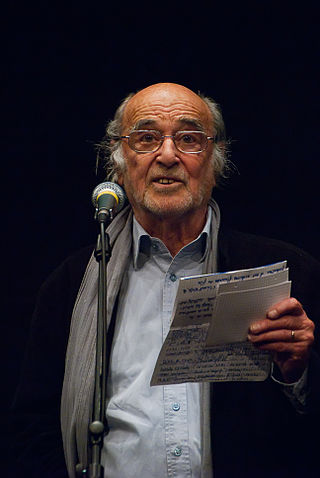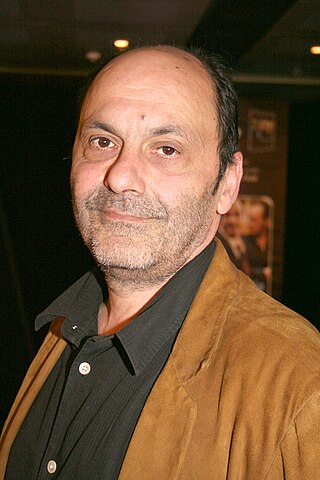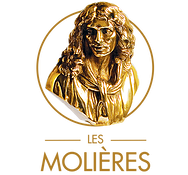The Prix des Deux Magots is a major French literary prize. It is presented to new works, and is generally awarded to works that are more off-beat and less conventional than those that receive the more mainstream Prix Goncourt.
The Prix Rosny-Aîné is a literary prize for French science fiction. It has been awarded annually since 1980 in two categories: best novel and best short fiction.

Pierre Lhomme was a French cinematographer and filmmaker.
The Prix Valery Larbaud is a French literary prize created in 1967, ten years after writer Valery Larbaud's death, by L'Association Internationale des Amis de Valery Larbaud, an organization dedicated to the promotion of his works. The prize is awarded to writers of books the jurists feel "that Larbaud would have loved". It is always awarded in Vichy on the last weekend in May.

Jean-Pierre Bacri was a French actor and screenwriter.

The Les Molière is the national theatre award of France and it recognises achievement of French theatre each year. The awards are considered the highest honour for productions and performances. Presided and decided by the Association professionnelle et artistique du théâtre (APAT), supported by the Ministry of Culture in a ceremony annually held, called the Nuit des Molières in Paris.
Jean-Claude Labrecque, was a director and cinematographer who learned the basics of filmmaking at the National Film Board of Canada.
The grand prix de l'Imaginaire, until 1992 the grand prix de la science-fiction française, is a French literary award for speculative fiction, established in 1972 by the writer Jean-Pierre Fontana as part of the science fiction convention of Clermont-Ferrand.
The 17th César Awards ceremony, presented by the Académie des Arts et Techniques du Cinéma, honoured the best French films of 1991 and took place on 22 February 1992 at the Palais des Congrès in Paris. The ceremony was chaired by Michèle Morgan and hosted by Frédéric Mitterrand. Tous les matins du monde won the award for Best Film.
The French Syndicate of Cinema Critics has, each year since 1946, awarded a prize, the Prix Méliès, to the best French film of the preceding year. More awards have been added over time: the Prix Léon Moussinac for the best foreign film, added in 1967; the Prix Novaïs-Texeira for the best short film, added in 1999; prizes for the best first French and best first foreign films, added in 2001 and 2014, respectively; etc.

Catherine Jacob is a French film and theatrical actress who has won a César Award for her role in Life Is a Long Quiet River (1988), and was nominated for Best Supporting Actress in Tatie Danielle (1990), Merci la vie (1991) and Neuf mois (1994). She has been two-time president of the Lumières Award. She is known for her voice and her charisma.
Alain Jessua was a French film director and screenwriter. He directed ten films between 1956 and 1997. He worked as assistant director for Jacques Becker on the set of Casque d'or, with Max Ophüls for Madame de... and Lola Montès and with Marcel Carné on Wasteland. Léon la lune his first short film won the influential Prix Jean Vigo in 1957. He directed first feature film in 1963 La vie à l'envers that won Best First Film at Venice Film Festival, in 1964.
Molière Award for Best Director. Winners and nominees.

Laurent Stocker is a French theatre and cinema actor, and a sociétaire of the Comédie-Française.
The Roger Nimier Prize is a French literature award. It is supposed to go to "a young author whose spirit is in line with the literary works of Roger Nimier". Nimier (1925–1962) was a novelist and a leading member of the Hussards movement. The prize was established in 1963 at the initiative of André Parinaud and Denis Huisman and is handed out annually during the second half of May. It comes with a sum of 5000 euro.
The Prix Victor-Rossel is a literary award in Belgium that was first awarded in 1938. The award was created by three people associated with the newspaper Le Soir: the owner Marie-Thérèse Rossel, the manager Lucien Fuss and the editor-in-chief, Charles Breisdorff.

The Cabourg Film Festival - Romantic Days takes place on the seaside of Normandy every year in June. The festival's theme is romance and presents a selection of films dedicated to passion, love and fantasies. The festival was founded by Gonzague Saint Bris in 1983, and its director is Suzel Pietri. Today, the festival reaches several towns on the Côte Fleurie between Cabourg, Houlgate and Dives-sur-Mer. At nightfall, the festival also offers several open air screenings on the beach of Cabourg.

Delphine Depardieu is a French actress. She is the daughter of Alain Depardieu, and Gérard Depardieu's niece. After her training at the École internationale de création audiovisuelle et de réalisation (EICAR), at the Cours Simon and Jean-Laurent Cochet's course, she was rapidly drawn to the stage and the cinema. On stage, she has acted with Roland Giraud, Paul Belmondo and Alexandre Brasseur.
The grand prix catholique de littérature is a French literary prize awarded by the Association des écrivains catholiques de langue française.
The prix Sade is a French literary prize created in 2001, sometimes called the Sade Prize in English, as an homage to the marquis de Sade.






